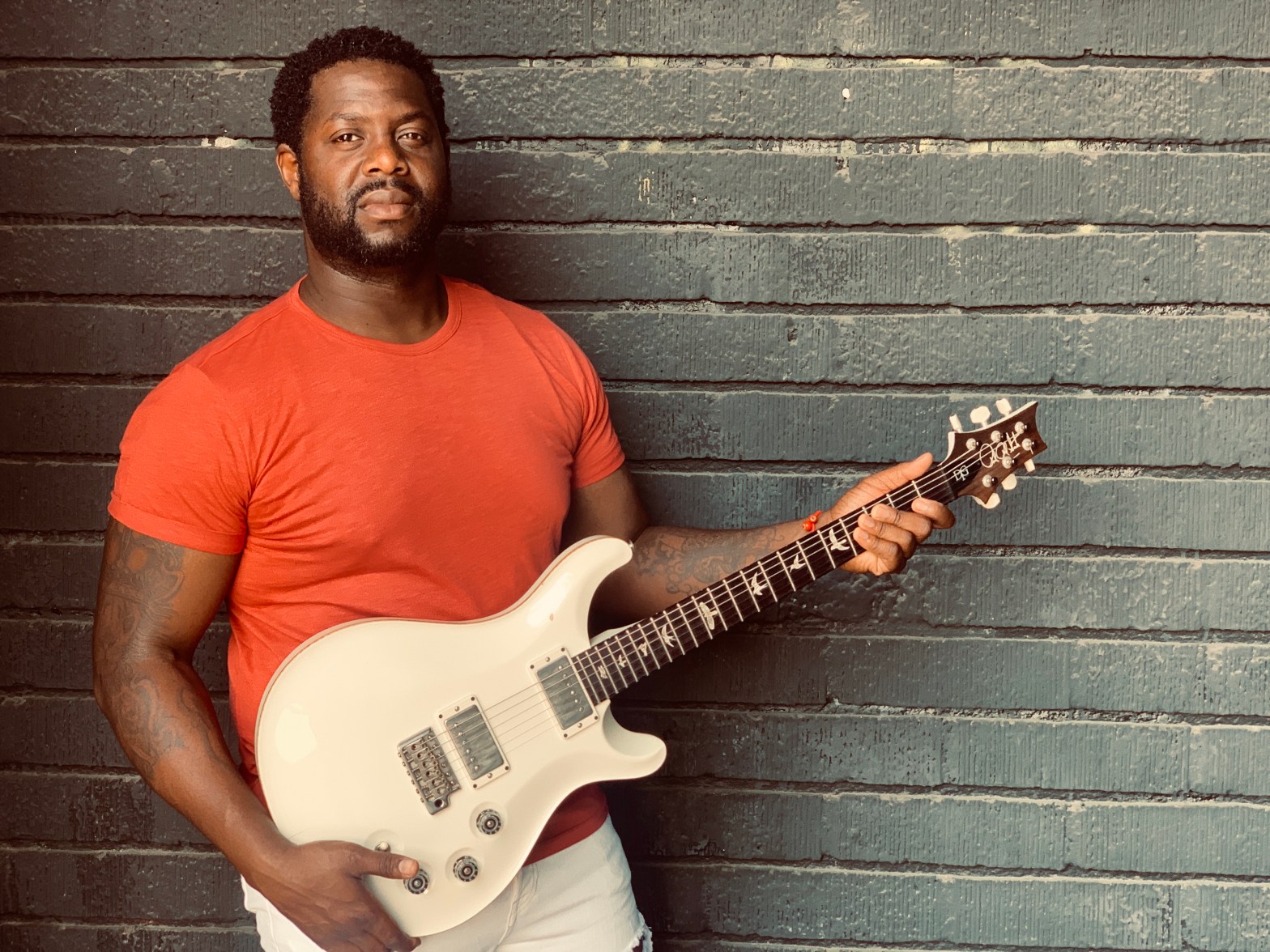
All images courtesy of 1617 Group Media
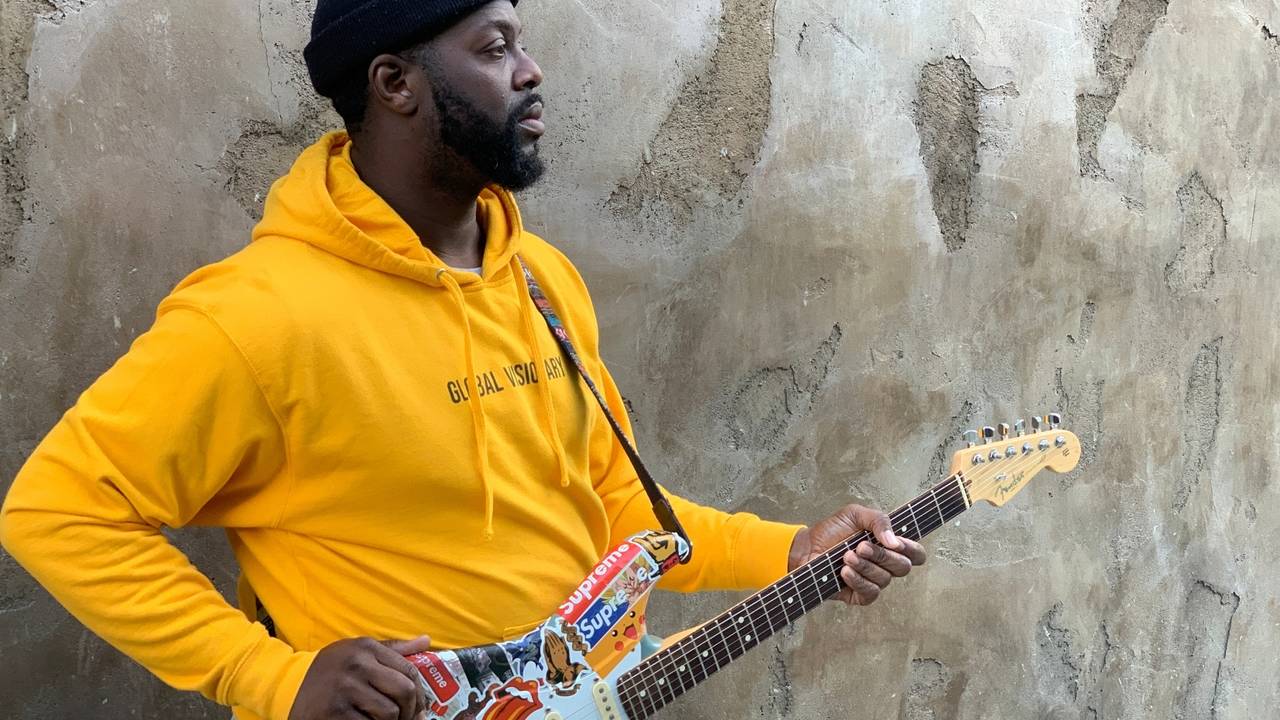
Kerry Marshall Jr, known professionally as Kerry “2Smooth” Marshall has steadily become one of the most sought-after axes for hire in music today. Not only has Kerry worked with some of the most talented musicians on the planet (as you’ll learn below) across multiple genres, but he’s also a veteran of two tours of duty in the Iraq War. His dedication to his craft, talent, and versatility speaks for itself. If you aren’t familiar with Kerry’s guitar work, I urge you to remedy that ASAP. If you’re into guitar, then it’s hard not to love what Kerry has to offer. His tone is second to none and just as his nickname suggests, he is smooooth. Seriously. In the meantime, head over to Kerry Marshall Jr’s website here, and learn more about his amazing career and slick guitar skills. After that, dig into this interview. It was a treat to speak with a real, live guitar hero and someone who not only rocks but served our country. Until next time- cheers.
Andrew:
Kerry, thank you for taking the time to speak with us. It’s been a weird year, hasn’t it? What have you been doing to pass the time?
Kerry:
My wife and I had a baby, bought a house and we moved across the country. Also, I’ve been pouring more of myself into my company and we increased our students to nearly 700 enrollees this year.
Andrew:
Tell us about about your backstory. How did you get into music? What was the gateway so to speak?
Kerry:
I’ve been around music my whole life. I started out in church and maintained a love affair throughout my time in the Army. I won several talent shows which further piqued my drive to want to play professionally. I moved back to Birmingham, Alabama, played on the local circuits and the Southern Soul market, and still wanted to challenge myself, so I moved to LA in 2013. While in LA, I got a chance to work with artists like Sean Kingston, Jason Derulo, Tori Kelly, the Black Eyed Peas, Melanie Fiona, Kiana Lede, Grace Weber, and many more.
Andrew:
As an artist and guitarist, who were some of your earliest and more important influences?
Kerry:
Eddie “Spanky” Alford, John “Jubu” Smith, Erick Walls, Tim Stewart, and Shonn Hinton – these guitarists helped shape my overall tone. Some of the influential artists span from D’Angelo, Jon B, Brian McKnight, Eric Benet, 112, Jagged Edge, Donnell Jones, and many more.
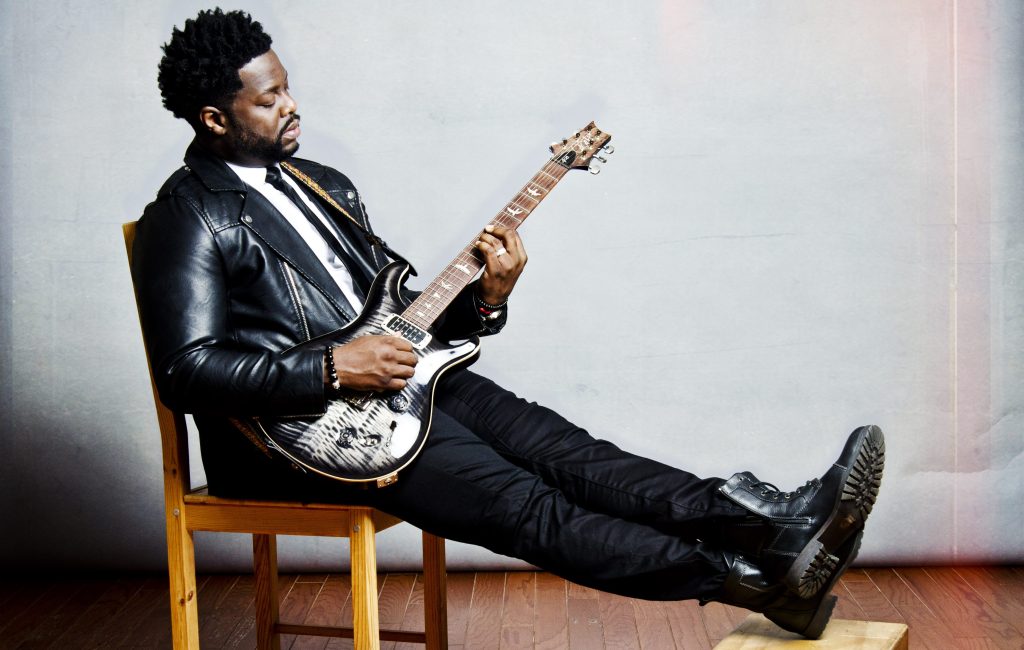
Andrew:
My understanding is you’re a veteran of the Iraq War. Is that correct? First of all, I want to thank you for your service. How did those experiences shape you as a musician going forward? How have they informed your music and guitar playing?
Kerry:
Yes, I am a veteran of the Iraq War. It made me more disciplined and realize that there is no time like the present to go after your dreams. You need to be extremely prepared to execute the job that you say you want to do. By being disciplined and methodical in what I do, I strive for excellence every time that I approach the instrument.
Andrew:
You’ve had the opportunity to work with artists such as Ty Dolla $ign, Ledisi, Chante Moore, Michelle Williams, and more. What has it been like having the opportunity to work with so many amazing artists?
Kerry:
It has been a validation of the hard work that I have put in to know that I possess the skills necessary to perform a job at the highest level and to know that I have the necessary character traits to maintain a relationship and good rapport with the artists as well.
Andrew:
While you were overseas, did you still play at all, or were your development and musical career sort of put on pause?
Kerry:
I had an acoustic guitar mailed to me and in my spare time, I would play. I also played at the chapel services. I linked up with several different soldiers and we wrote songs and put on soldier shows.
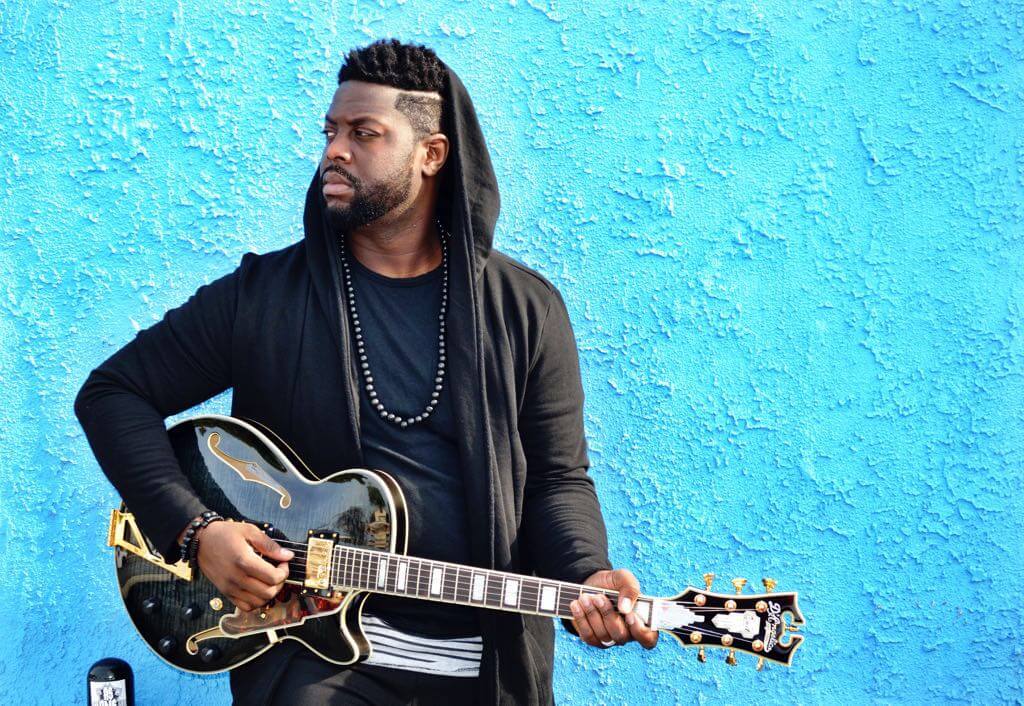
Andrew:
In 2013, you released your debut solo album, No Ordinary Conversation. What do you remember about the recording of that album? How have you progressed since?
Kerry:
The conception of this project came because I was in a horrible accident that almost took my life but did, unfortunately, take my only two guitars at the time. I realized how short life can be so this project was inspired by that accident. I remember using whatever guitar I could get my hands on to record this project. People kept asking me when I was going to release an album and I wanted to get my creative ideas out, so recording this album was the best way to do it at the time.
I have learned since, how to play guitar on a record. I have learned how to layer guitars and how to not overplay. I have learned the importance of textures in creating a song and a project.
Andrew:
With all this downtime we are experiencing, can we hope for a new record soon?
Kerry:
During this time, my focus is on getting the next generation of guitarists equipped to play guitar at their highest level. Whether that be playing for their family, playing locally, playing at church, or playing professionally. I have no plans to work on a solo project but I’m currently working with production teams on major placements.
Andrew:
Let’s talk about the state of music, in general, a bit. In your opinion, what’s the state of the music industry these days? What are some things that need to change?
Kerry:
The state of the music industry is evolving. What needs to change is their need to be different platforms where artists can share their gifts and be compensated for them, especially in a world where touring isn’t an option, at the moment.
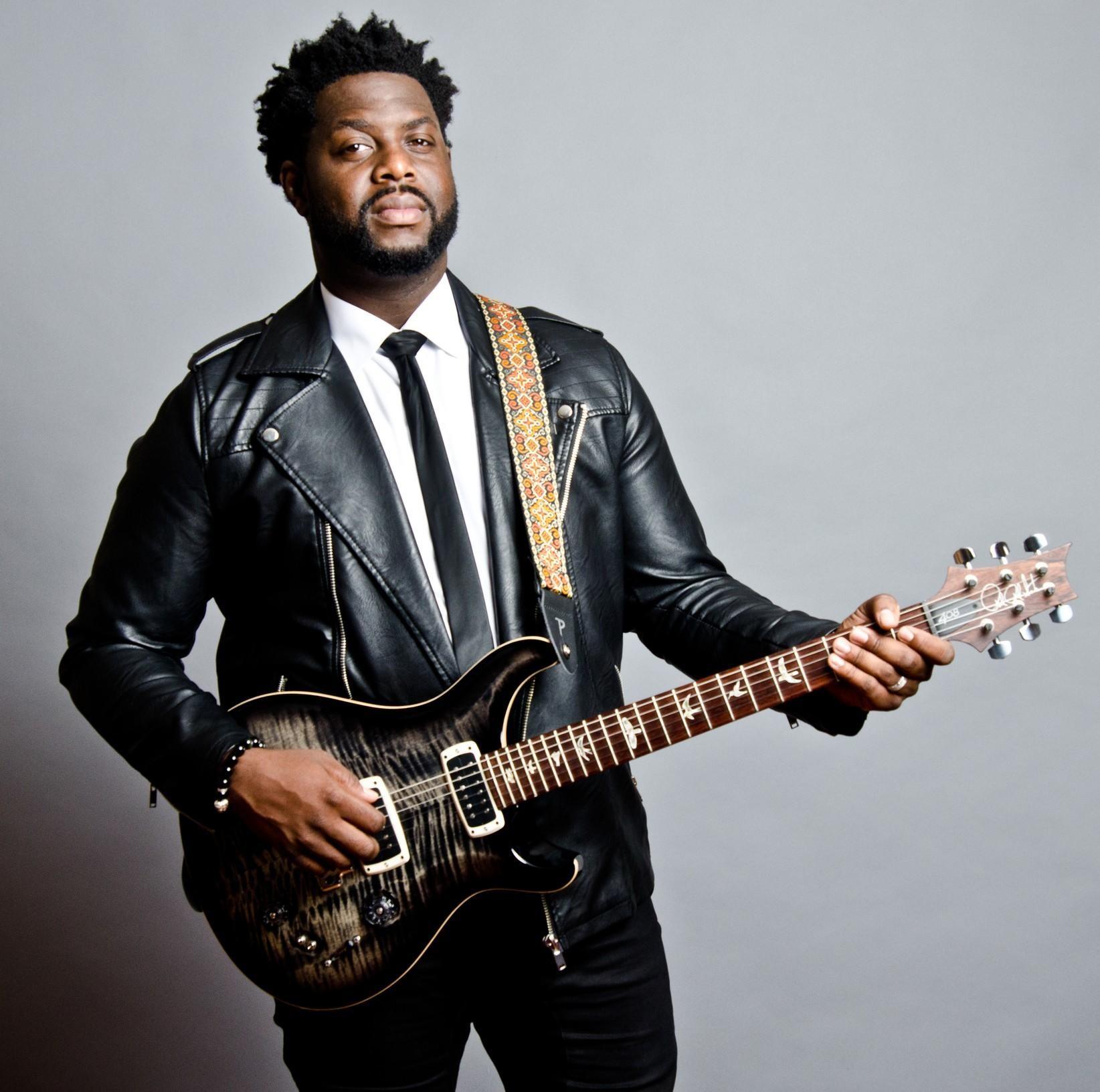
Andrew:
In the world we live in today, we are more or less dominated by the never-ending barrage of social media. How has this affected music as an art form? Is an artist’s ability to get their music out there hindered by all this, or helped?
Kerry:
Social media is free marketing. You have the ability to be exposed to people all over the world. Every time you post a video you have the chance at going viral. Social media has been a tool and has been instrumental in musical directors, A&R’s, producers, and other musicians reaching out to me to collaborate or to hire me for shows, gigs, and sessions.
Andrew:
What are a few albums that mean the most to you and why?
Fred Hammond – Free To Worship. That album/DVD helped save my life and my mental state during my last deployment. It also showed me that Gospel music could be produced like a concert. The stage production, the arrangements, it was a real concert and not just a church performance. I had never seen anything like that before.
Andrew;
Aside from music, what else are you most passionate about and why? How do your other passions inform and inspire your music?
Kerry:
College Football because my team, Alabama, has always been the best and that inspired me to be the best.
My family, because of the connection I have with each member of my family. It allows me to tap into a different level of playing so my conversation with music becomes different.

Andrew:
What type of guitars and gear are you using the these days?
GUITARS: Iconic Jazz Master, Gibson Les Paul, 2 Fender Strats (one is an SSS and one is an HSS), LSL Saticoy, Suhr Telecaster, Eastman 464, Taylor 714ce, Tom Anderson Raven, and Oopegg Trailblazer.
GEAR: Helix, Boss ME80, 2 pedalboards, Amps (Badcat Lynx, Quilter Aviator & Mini Reverb 101).
Andrew:
Are you into vinyl? Tapes? CDs? Or are you all digital now? Where do you like to shop for music?
Kerry:
I’m all digital but have been considering getting a record player. I shop for music in the Apple Store, Spotify and YouTube.
Andrew:
Last question. In a world that’s been so confined by the constraints of big business and the alienation caused due to the internet age, how do artists find their footing these days? What advice would you have for younger artists?
Kerry:
Artists need to learn to adapt to the new ideologies. Learn the newest trends. Be part of the current and don’t get swept away by it.
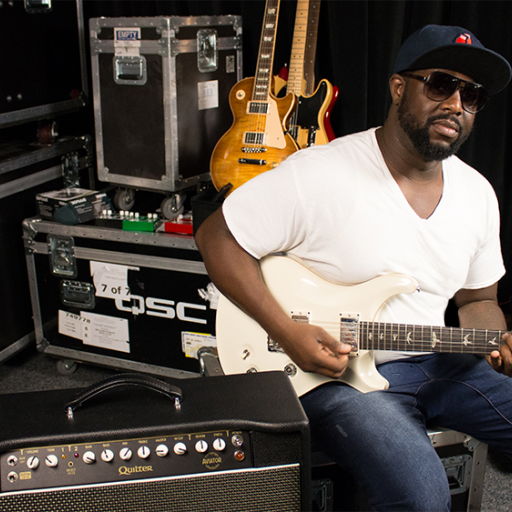
Interested in hearing Kerry Marshall Jr. shred? Check out the link below:
Dig this interview? Check out the full archives of Vinyl Writer Interviews, by Andrew Daly, here: www.vinylwritermusic.com/interviews
